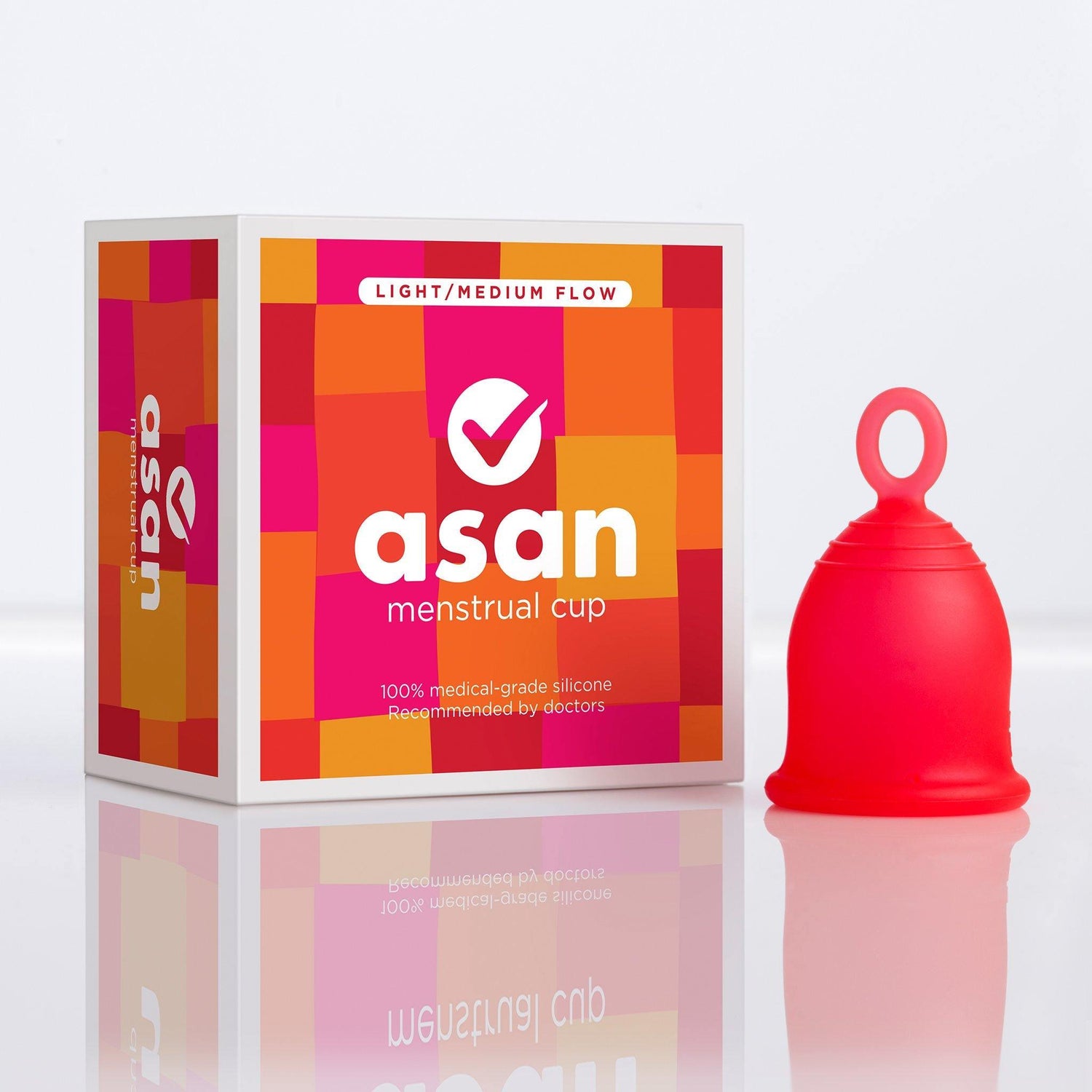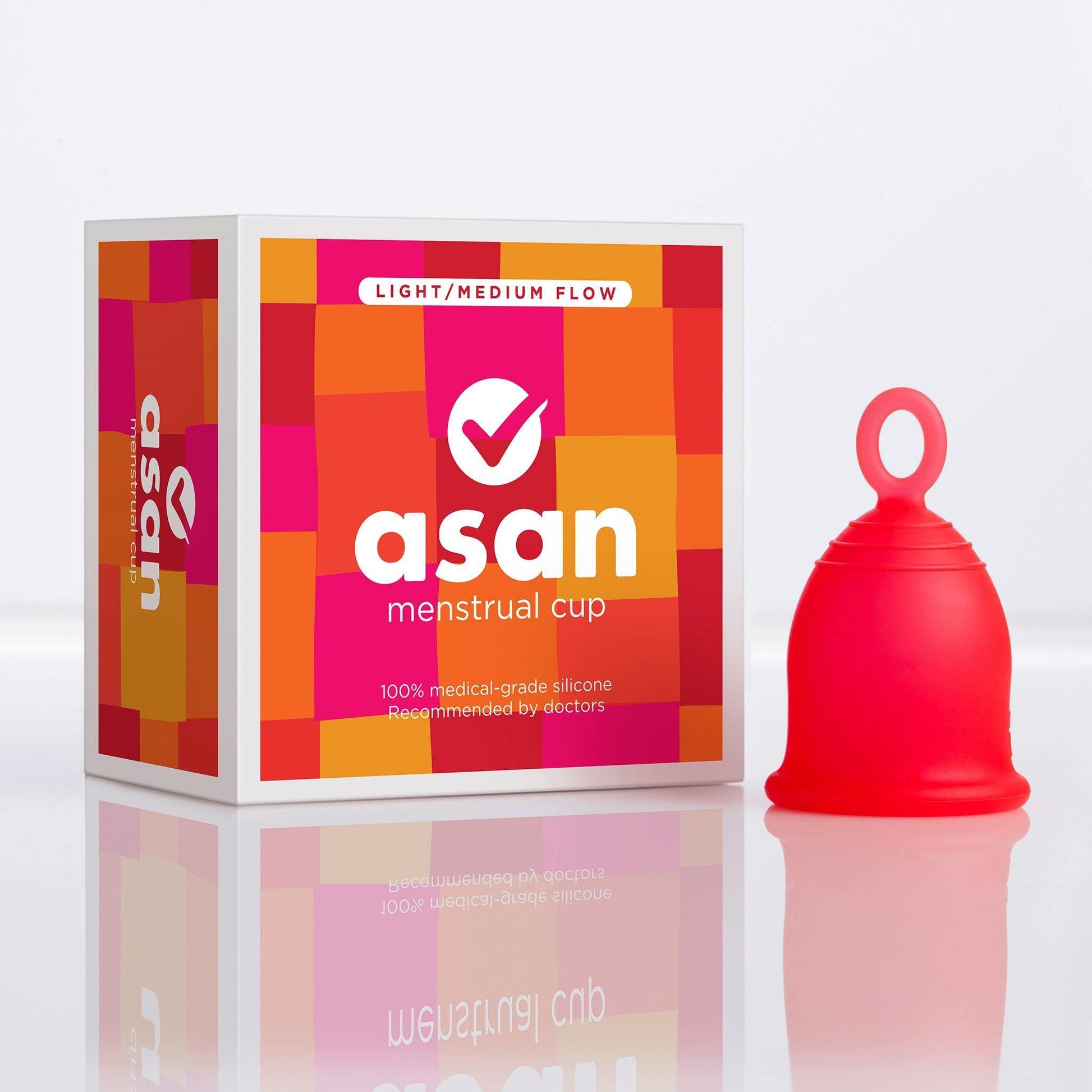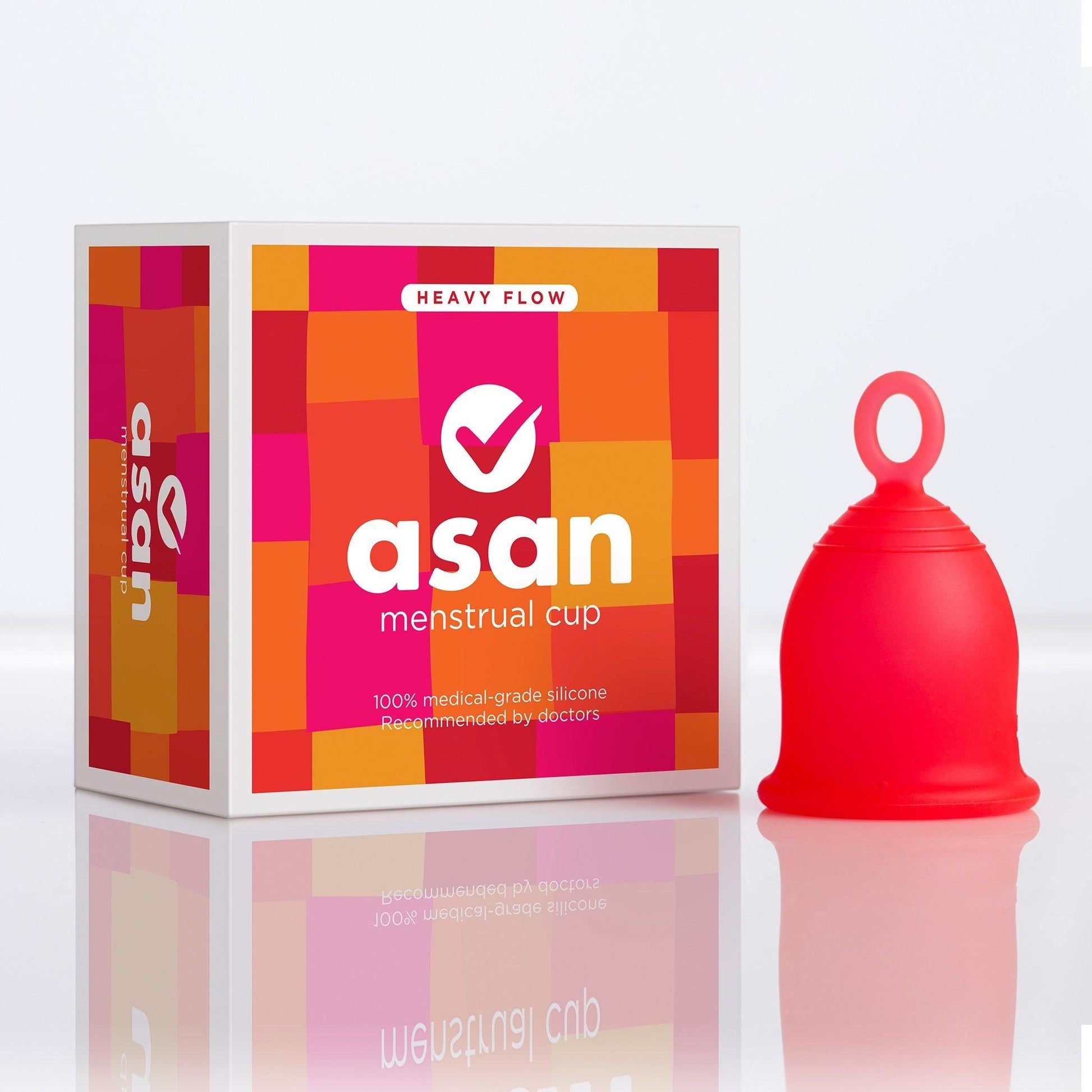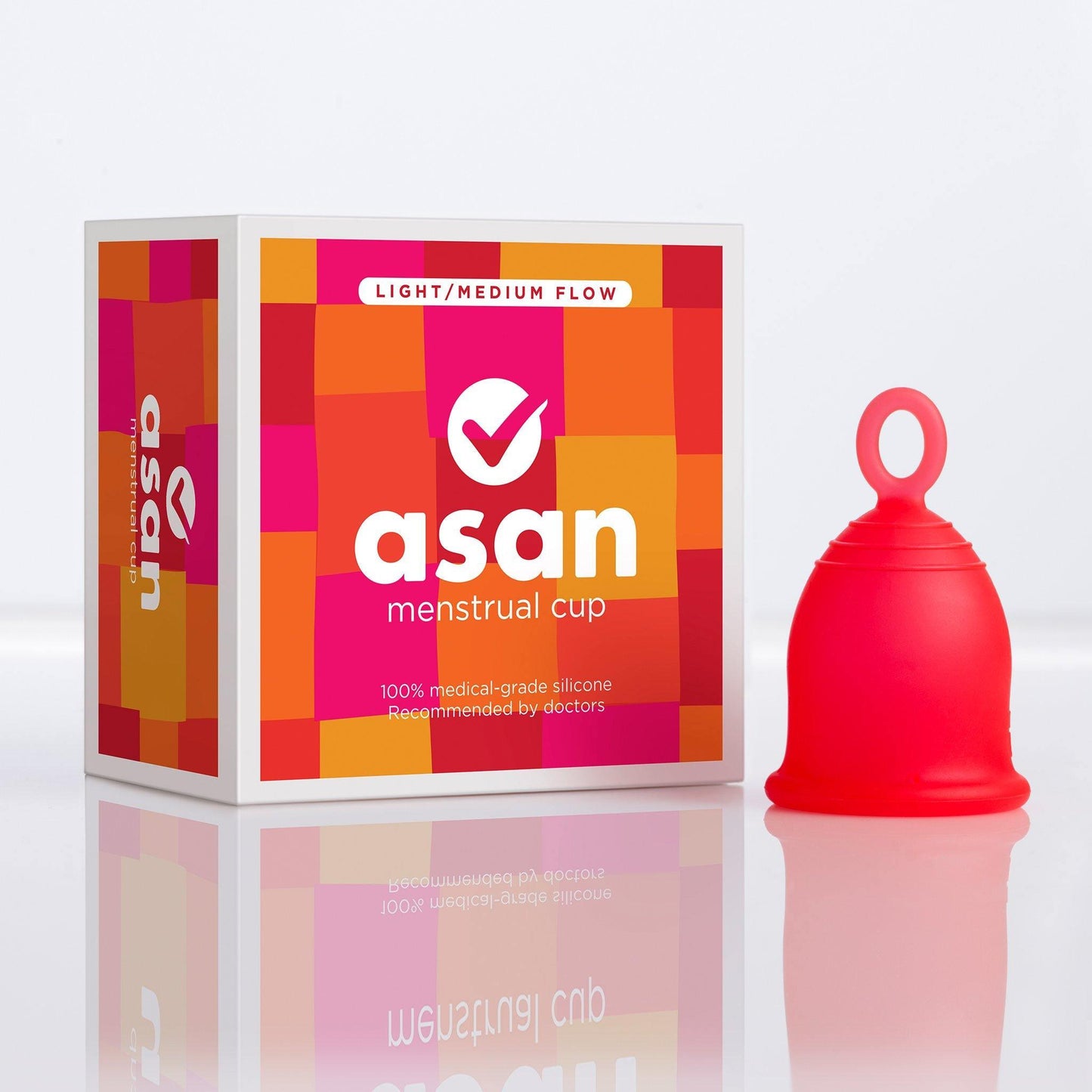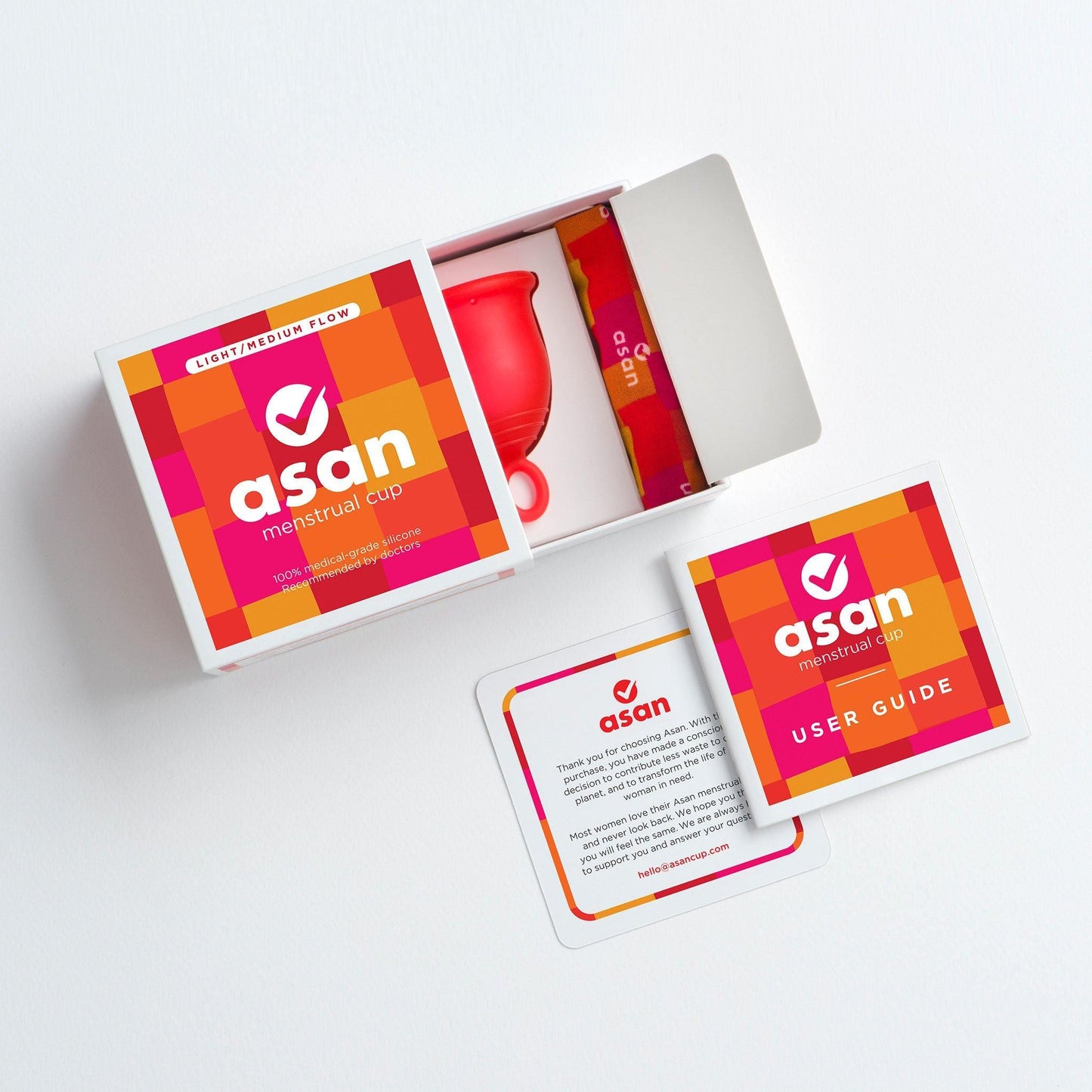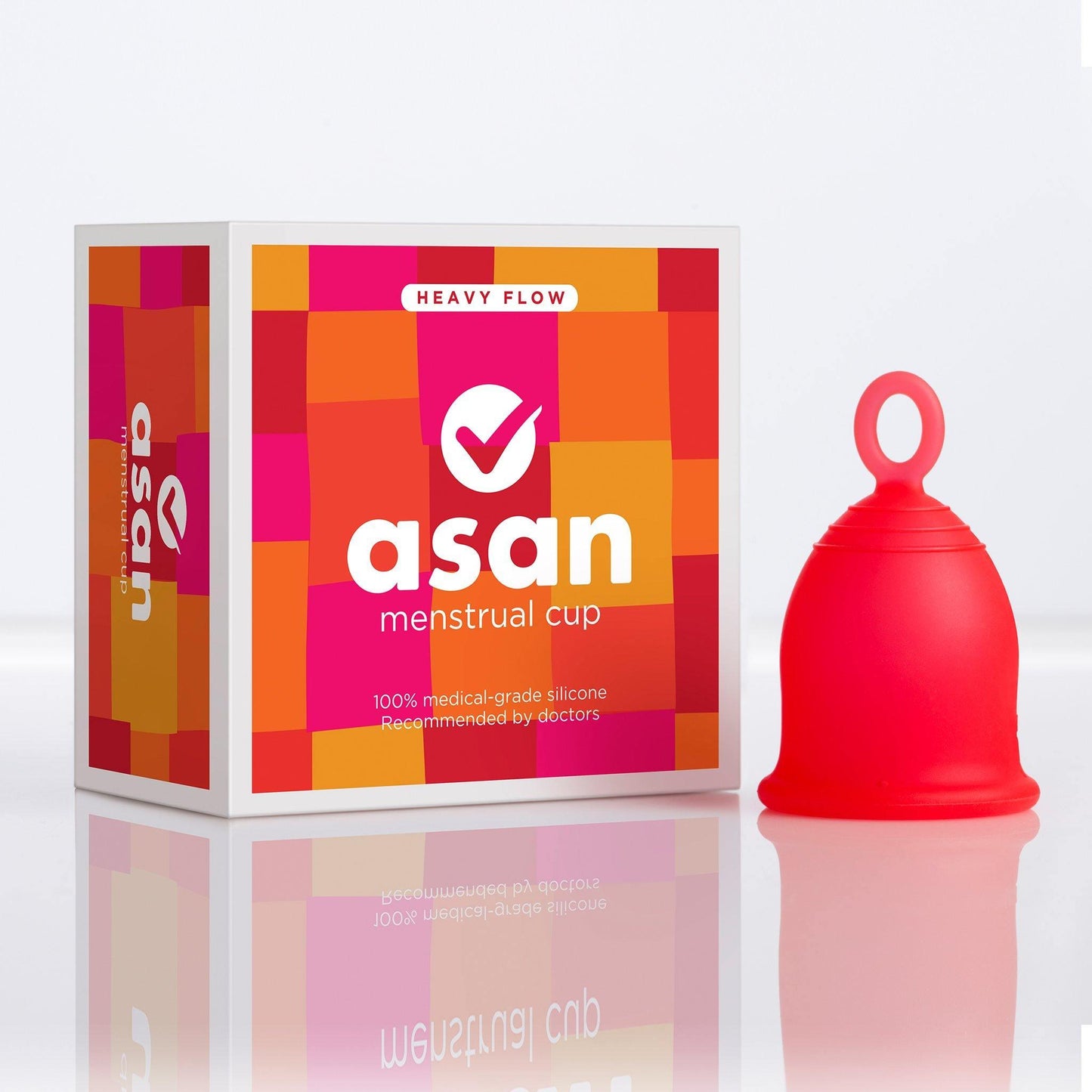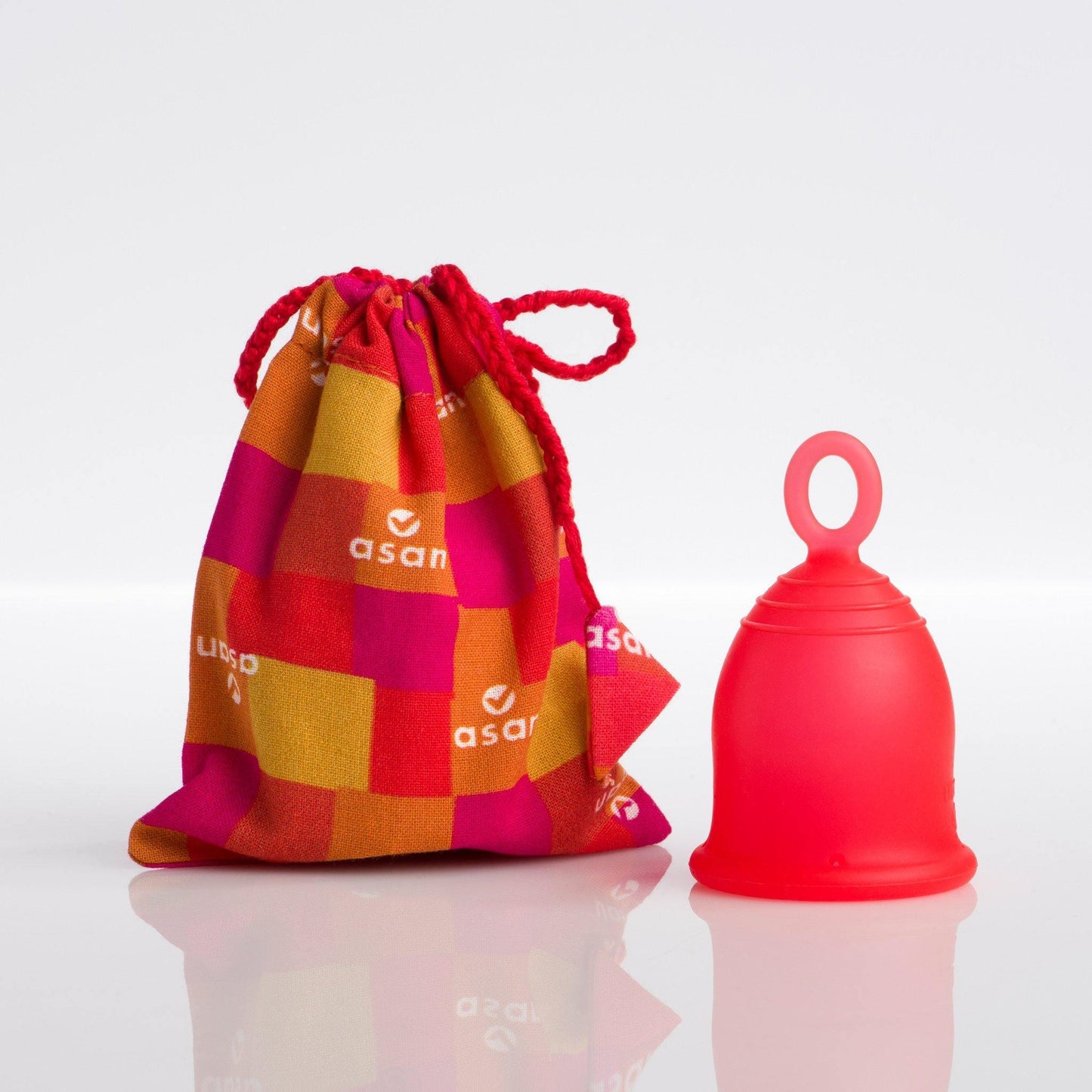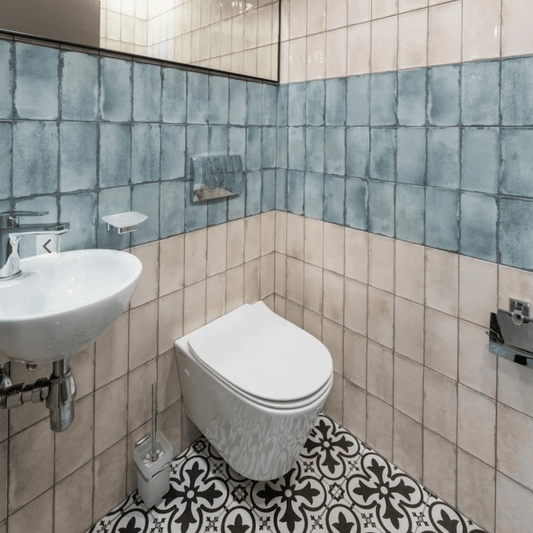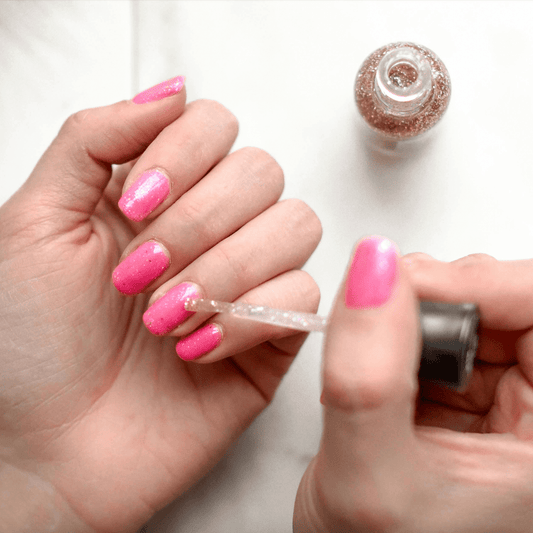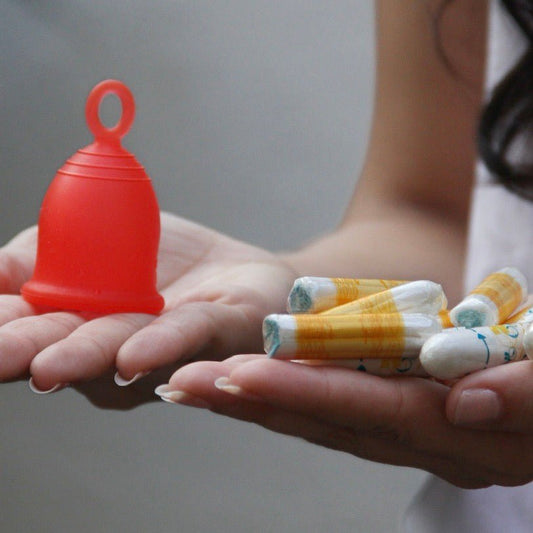 Have you ever felt symptoms like irritability, anxiety and low energy before and during your period? Do you feel as if your menstrual cycle is linked to your mental health?
Have you ever felt symptoms like irritability, anxiety and low energy before and during your period? Do you feel as if your menstrual cycle is linked to your mental health?
Well guess what - almost everyone experiences these feelings while they’re on their period. So why are we not talking about this more?
This #mentalhealthmonth2022 let's talk about the impact that periods have on our mental health and learn about Premenstrual Syndrome (PMS).
Over the last few months, Asan conducted a study about the relationship between PMS, periods and mental health. We received an overwhelming response from over 250 people across both India and the UK.
90% of the women surveyed claimed that PMS interferes with their daily life and affects their mental well-being. Meanwhile, a shocking 66% participants have never received any education about PMS.
PMS can impact how we go about daily activities, such as work, sport and socialising. However, it is often talked about in disparaging or mocking terms, with little understanding of the influence that it can have on mental health.
We clearly need to be having more conversations about PMS, periods and our mental health. So, this blog will help you understand exactly what goes on in your body during this time, and rest assured that you’re not alone in everything you feel during this time!
 what is pms?
what is pms?
PMS is the condition that results from the hormonal changes that occur in our body to prepare us for our periods and usually occurs 3-5 days before our period arrives.
It refers to the various symptoms that we experience before our period begins - which can be mental, emotional and physical.
PMS is not just linked to irregular periods or irregular menstrual cycles – nearly all of us experience PMS in some way, no matter how regular or “healthy” our cycles are.
what hormones play a role in pms?
In order to understand the hormonal changes linked with the menstrual cycle, lets first learn about the 3 key hormones that play a role:
- Oestrogen
Oestrogen is one of the main female sex hormones and is needed to ensure that our menstrual cycle, and reproductive health functions properly.
2. Progesterone
Similar to oestrogen, progesterone is also a sex hormone that regulates our menstrual cycle, and is directly involved in preparing our bodies for conception and maintaining pregnancy.
3. Serotonin
You may have heard about serotonin as the happiness hormone. While you are right to think that, it also plays a much bigger role in our brain. Serotonin helps regulate our behaviour, digestive processes, breathing, attention span and body temperature.
 what hormone changes occur in our body during pms?
what hormone changes occur in our body during pms?
Now that we’ve learnt about the 3 different hormones that are involved in PMS, lets learn about what happens during our period mentally and what exactly causes PMS.
Before and during our menstrual cycle, levels of progesterone and oestrogen begin to fluctuate within our bodies.
It is completely normal for these hormones to fluctuate during our menstrual cycles - however they do have an impact on our bodies and mental health.
Low levels of oestrogen are directly linked to low levels of serotonin - so as a result our brain stops producing the required amount of serotonin to balance our mood and maintain our mental health.
These hormones continue to fluctuate before our period and throughout our menstrual cycle - which is what causes all the unpredictable changes in emotions we may experience during this time.
 In fact, many people experience intrusive thoughts before their period or emotional breakdowns during their period - which is completely normal and simply a result of your oestrogen and progesterone hormone levels changing.
In fact, many people experience intrusive thoughts before their period or emotional breakdowns during their period - which is completely normal and simply a result of your oestrogen and progesterone hormone levels changing.
what are the symptoms of pms?
The symptoms of PMS can manifest in terms of mental, emotional and physical experience - or a combination of all three. The symptoms can include, but are not limited to, the following:
- Tender breasts
- Back pain and stomach cramps
- Pimples
- Changes in mood, including becoming easily irritated, angry or sad
- Feeling more emotionally sensitive
- Increased anxiety and depression during period
- Changes in sex drive
- Trouble sleeping, also known as insomnia
how can pms make you feel?
You may be wondering, how does PMS affect your mental health? Can your period make you emotionally unstable?
Well, PMS can make you feel a range of emotions and changes in your body which is completely normal.
During our study about the relationship between PMS and mental health, many participants expressed how PMS and their period makes them feel. Do you feel the same way too?
“I feel more down and have less motivation to do things and see people. I also feel a lot more guilt over nothing.”
“I tend to isolate myself on my period due to low mood and tiredness.”
“The pain doesn’t allow me to socialise or carry on with my daily life.”
“My self esteem is lower and I feel less ‘pretty.’”

“I get extremely paranoid and anxious for events which I would not at other times. Also, I tend to over-analyse situations during this period.”
“I feel more emotional. My reactions to situations can become more extreme and I am more likely to become upset.”
“PMS interferes seriously with my job, which in turn affects my anxiety and self-esteem.”

how do pms and periods impact our daily lives?
Have you ever skipped school or work before or during your period? Well if your answer is yes, you’re not alone.
Our study shows that:
- 38% participants have skipped school or work due to periods
- 69% of participants have skipped a social event on their periods

Not only does PMS and periods affect people’s abilities to participate in everyday activities such as school and work, but it also directly affects their mental health.
Our study found that:
- 66% of participants claimed that their self esteem changes during periods
- 70% participants experience increased anxiety during their period
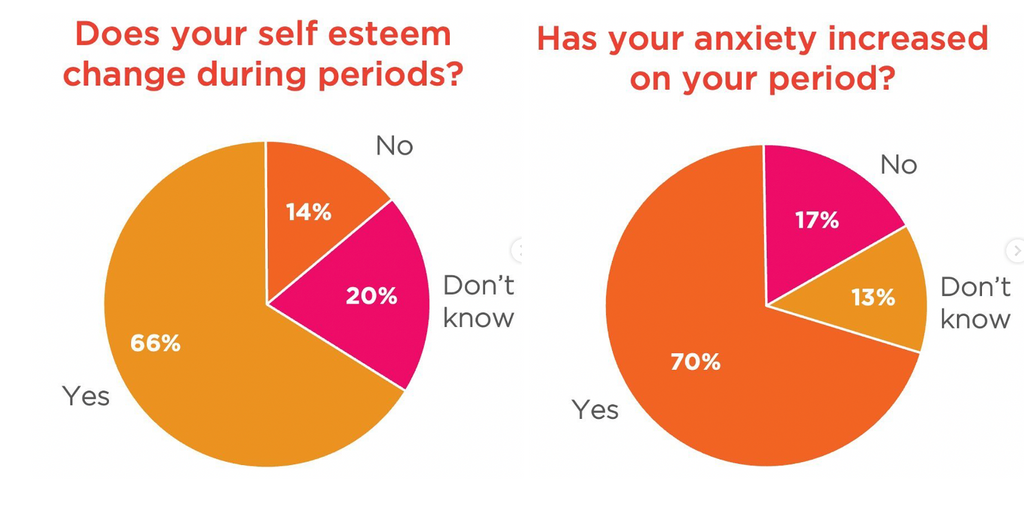 While these statistics are shocking, not nearly enough medical research has been done to address this crucial issue that people on their periods regularly face - often resulting in people feeling isolated and increasing their stress and anxiety.
While these statistics are shocking, not nearly enough medical research has been done to address this crucial issue that people on their periods regularly face - often resulting in people feeling isolated and increasing their stress and anxiety.
So, next time you are experiencing symptoms of PMS and low mental health during your period, remember that it is completely normal and you are not alone.
how can i take care of my mental health while on my period?
While the impacts of our period on our mental health can’t be avoided, there are ways that we can take care of ourselves and ensure that the symptoms don’t get worse.
In our study on the relationship between periods and mental health, we asked participants for advice on how to improve mental health before and during periods.
So, here are the top 8 proven tips that will help you take care of your mental health while on your period:
1. Drink a lot of water and electrolytes
It is important to keep our water intake up during our periods as this can help reduce bloating and alleviate some of the pain we feel from menstrual cramps.
2. Spend time in nature
Being outdoors with nature can help your brain release serotonin, aka the happiness hormone. So on periods it is all the more important to get outside.
This does not mean planning an intensive hike or marathon while on your period - listen to your body and don’t push yourself. Simply going on a walk around your neighbourhood park can be just what you need.

3. Do yoga or some gentle exercise
Even just 30 mins of exercise such as a brisk walk, swimming, jogging can alleviate symptoms of PMS such as depression and fatigue.
Through engaging in some physical activity, your body will release endorphins which help in lifting spirits and easing menstrual cramps.

4. Take pain relief medications
If your stomach cramps and back pain is preventing you from going about your day and you don’t have the liberty to take the day off, there is no harm in taking some medication to help ease your pain.
We recommend that you consult a doctor to understand which medication will work best for your symptoms.
5. Listen to relaxing and happy music
Often listening to some soothing music is all your body needs to feel calmer and at ease while you’re dealing with low mental health and symptoms of PMS.

6. Stay in bed and eat a favourite food of your choice
As our bodies experience fluctuating levels of serotonin during our periods, it is completely okay to satisfy our food cravings to boost our serotonin levels.
7. Surround yourself with loved ones
If you’re looking for a way to distract yourself while dealing with period cramps but don’t have the energy to actively socialise, surrounding yourself with loved ones who give you the space to just be can be very helpful.
8. Be patient with yourself
The most important thing is to go easy on yourself and give your mind and body the space to handle all the stress that your periods are causing.
Understand that nothing comes above your well-being.
how can the period products we use contribute to our mental health?
While our body is already dealing with so many symptoms of PMS, the period products we use can play a big role in contributing to low mental health during our period.
When we wear single-use plastic sanitary pads there is an ongoing feeling of moisture, bulkiness and discomfort near our vaginas - which acts as a constant reminder that we’re bleeding.
We’re also often dealing with the constant fear of our pad leaking or slipping to the side of our underwear - which leads to increased stress and anxiety.
 Single-use sanitary pads also often cause rashes, soreness and irritation near our vaginas. So not only do they affect our mental health but also have a negative impact on our physical health.
Single-use sanitary pads also often cause rashes, soreness and irritation near our vaginas. So not only do they affect our mental health but also have a negative impact on our physical health.
Even worse, studies show that chemicals found in sanitary pads and tampons can worsen our period cramps as our bodies absorb in harmful toxins that are used to make single-use plastic period products.
so, what is the alternative?
While switching to the Asan cup has many pro’s, one of the biggest benefits we hear from both our urban and rural users is the significant reduction in stress and anxiety that they experience while on their periods.
 As the Asan cup is an insertable period product that sits inside your vagina, once you insert it you don’t feel a thing! It is so comfortable that many users even forget that they’re on their period.
As the Asan cup is an insertable period product that sits inside your vagina, once you insert it you don’t feel a thing! It is so comfortable that many users even forget that they’re on their period.
Moreover, it reduces the stress of having to change your sanitary pad or tampon every 3-6 hours while you may be at work, at school or on the field.
Not only does it save you the hassle of finding a clean toilet to do that, but you also no longer have to worry about where to dispose of your used pads or tampons.
The ease that the Asan cup creates when it comes to managing your period directly reduces your stress during this already overwhelming time.
So it really is worth making the switch to a menstrual cup for your mental health. To learn exactly how the Asan cup works, read our blog on everything you need to know about menstrual cups.
So are you ready to take a positive step for better mental health during your period? Shop here for the Asan cup now.
